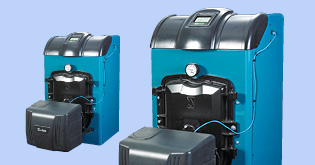- My Account:
- Sign In
- Register
- Make Payment

How often should you change your AC filter? | Petro
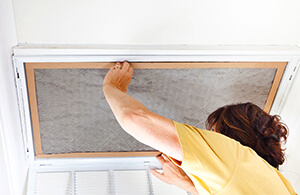
Many homeowners wonder how often they should change their home air conditioning (AC) filters and how to do it? This article can help answer these questions so that you know when and how to do these tasks.
How often should you change your AC filter?
The easy answer: It depends. Answer these questions first before you decide to change your AC filter and always consult a professional for your AC repair and AC service needs.
- What type of AC filter do you use?
The types of AC filters used in your home can impact how often you replace the filters. If you use standard 1 to 3-inch air filters, you should change filters every 30 to 60 days if you are allergy-free. Should you suffer light to moderate allergies, change filters or replace them more often, around every three weeks. - How would you rate your home’s indoor air quality?
Excellent, good, fair, or poor (someone smokes in the house). Have you noticed any “strange” smells coming from your AC system? If you have, call an expert technician, because these could be signs that your AC needs a tune-up. - What type and number of pets do you have?
Except for certain dog breeds, e.g. Yorkshire Terriers, which are hypoallergenic and do not shed dander, the type and number of pets in the home dictate more frequent air filter replacement. Add a pet, and you should change your AC air filter, at least, every 60 days. Add another pet, giving you multiple pets, and you should change air filters every 20 to 45 days. - How many people live in your home?
If you live alone, without pets, and suffer no allergies, you could wait to change filters at 6 to 12-month intervals. However, if your home is “stuffed” with a spouse and several kids, more frequent air filter changes, say every 20 to 45 days, to improve the air quality in your home. - What is the level of air pollution outdoors around your house?
Should you live in a rural area or have AC in a vacation home that you only periodically use, the air around your house should be free of high levels of pollution, since there are fewer vehicles to pollute the air. Construction projects going on around your house? The dust outdoors increases, recommend air filter replacement frequency as often as every 30 to 60 days. The same rule of thumb applies if you live on a heavily-traveled roadway.
Finding the “right” air conditioner replacement filter.
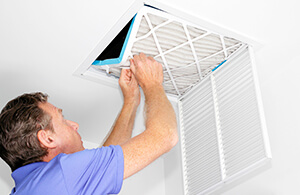
There are seemingly an infinite number of filter size options. The sizes and types of AC filters on the market can vary. Call the manufacturer or your favorite expert tech to learn the “right” air filter for your AC system. Visit your AC manufacturer’s website to learn where you can buy the air filters your AC system uses or ask your tech expert for the size you need. You could also remove the one you now use and look on the frame for the labeled dimensions (width, depth, and height).
How to change an AC filter in your home.
Many people do not think about their AC system until it doesn’t work. You only need to take these three simple steps to improve the efficiency of your AC by 5 to 15%, by changing clogged filters.
- First, you need to find its location and remove it.
This may sound silly, but is a true problem for many homeowners. This is particularly common for those who only pay attention to their AC when it stops working. - Identify your filter size and types of filters.
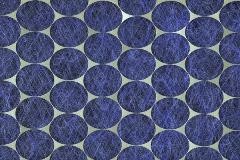
Older systems typically use fiberglass air filters. You should replace these regularly, around every 30 days. Newer systems often use pleated filters, also rectangular with a depth of about one inch. You should replace these about every 90 days if you have no allergies, but AC pros typically recommend every 45 days for max efficiency.
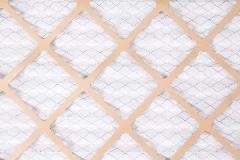
Be sure to replace them with the right size and type of air filter. If your AC was working properly, you could remove the filter and buy one that is identical to it. If you have a “media filter” you’ll only need to replace it every 6 to 8 months. These look like pleated filters, but last longer.
- Install the filter, once you purchase the type and size you need.
Don’t forget to install the new air filter. It’s amazing how many homeowners “forget” to install the new filters they buy as replacements.
Summing it up.
It is vital that you choose the right filter for your AC system. The key is to change them (or clean them) regularly. Always replace a clogged filter with a new, clean one. If you suffer with allergies or have a pet, change filters more often than the “rules of thumb” appearing earlier in this article.
If you prefer, Petro Home Services expert field techs can offer service plans that cover regular AC filter replacement. You also can call your local Petro depot and ask about our maintenance/service plans.
Learn more about the air conditioning service plans we offer at Petro Home Services so that you can be sure your AC is running just as it is meant to! Make Petro Home Services your new go-to for all your essential air conditioning resources!
Contact Petro today at Sales 888.735.5651 or Service 800.645.4328
Sources:
http://www.doityourself.com/stry/how-to-replace-an-air-conditioner-filter
Related resources:
When to replace your Central Air Conditioning System
Petro Home Services is proud to not only serve communities in DC, CT, MA, MD, NJ, NY, PA, and RI but we also proudly acknowledge the skills and experience of our expert team behind all resources. With insights on topics ranging from heating oil facts to common air conditioning questions, you can rely on Petro Home Services for facts and information to help you understand more about your heating, cooling and home comfort needs. This article and all articles on the Petro Home Services website have been approved by our team of home service experts.


